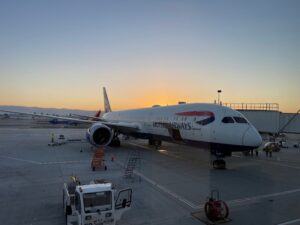JetBlue and Spirit said Friday that they will appeal a judge’s decision that would block them from completing their blockbuster merger.
In a press release, the airlines said that they had filed a notice of appeal “consistent with the requirements of the merger agreement.”
Want more airline-specific news? Sign up for TPG’s free biweekly Aviation newsletter.
In a memo to employees shared with TPG by a source familiar with the matter, the airline’s general counsel Brandon Nelson noted that the airline was still under obligations of the merger agreement.
”As part of that, today we filed a notice to appeal in the federal court in Massachusetts. This is a standard procedure, required under the merger agreement.”
Share prices for Spirit, which were up on Friday, have fallen more than 50% since the decision by Judge William Young of the federal District Court for Massachusetts was announced.
During an antitrust trial in Boston last fall, JetBlue argued that it needed Spirit’s aircraft and crew members in order to supercharge its growth to a size that would allow it to compete with bigger U.S. carriers. Spirit said that it was in a precarious financial position and could no longer compete effectively with its particular ultra-low-cost business model. Under the terms of the merger, JetBlue would acquire Spirit and absorb its assets under its own brand and operation.
Since the merger deal was first struck last spring, Spirit’s valuation has fallen significantly as the airline struggled to return from pandemic lows and generate a profit, putting JetBlue in a difficult situation where it was committed to buying Spirit at an inflated price of $3.8 billion, or $33.50 per share.
However, under the terms of the merger, JetBlue would be on the hook for a reverse breakup payment of $470 million to Spirit shareholders.
Nevertheless, analysts have appeared to see that as a fee worth paying, viewing the injunction as the only way out for JetBlue from what has become a bad deal for the airline, which would also take on significant debt of Spirit’s.
”But we also believe JetBlue was wholly unprepared (or unwilling) to proceed with the originally-crafted deal economics (the price was simply just too much to pay for the SAVE assets in hindsight, which in this case is definitely 20/20),” JP Morgan analyst Jamie Baker wrote following the injunction.
The “legal outcome frees JetBlue from the latter negotiation, as we have no reason to believe its expected (contractual) appeal will alter the outcome,” he added.
Analysts also raised the strong possibility of Spirit declaring bankruptcy.
”Our view is that there is real bankruptcy risk at Spirit without a swift change in fundamentals,” Connor Cunningham of Melius Research wrote in a research note. “But that doesn’t mean management won’t fight to right the ship.”
It’s possible that Spirit would fold completely, wrote analyst Helane Becker of TD Cowen.
”We believe the best case scenario for Spirit is a Chapter 11 filing followed by a liquidation (Chapter 7),” Becker wrote.


